Lecture
Abilities are individual psychological characteristics of a person, manifested in activity and are a condition for the success of its implementation. Speed, depth, ease and durability of the process of mastering knowledge and skills depend on the abilities, but they themselves are not reduced to them. Based on the analysis of psychological literature on the problem of abilities, we can single out the following signs of the presence of abilities for any type of activity (Fig. 1).
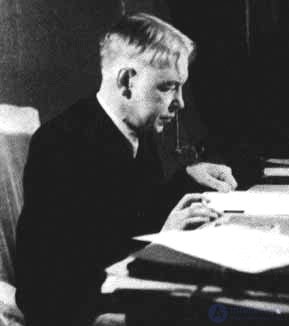 To date, there are various approaches to the definition of abilities (Fig. 2). A deep analysis of the problem of ability was given by BM. Heat (Heat BM, 1985). According to the concept developed by him and his staff, only anatomical, physiological and functional characteristics of a person can be congenital, creating certain prerequisites for the development of abilities, called instincts.
To date, there are various approaches to the definition of abilities (Fig. 2). A deep analysis of the problem of ability was given by BM. Heat (Heat BM, 1985). According to the concept developed by him and his staff, only anatomical, physiological and functional characteristics of a person can be congenital, creating certain prerequisites for the development of abilities, called instincts.
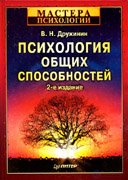 In this regard, we first consider the relationship of concepts: abilities, makings, genius and talent based on the general structure of abilities (Fig. 3, see the animation).
In this regard, we first consider the relationship of concepts: abilities, makings, genius and talent based on the general structure of abilities (Fig. 3, see the animation).
The makings are very significant, they are only prerequisites for the development of abilities (Fig. 5).
In the development of abilities, they enter only as a starting point. Abilities that develop on their basis are determined by, but not predetermined by them (Druzhinin V.N., 2002; see annotation).
Talent and genius are levels of ability. Talent is the highest degree of personality abilities in a certain activity, and genius is the highest degree of manifestation of creative abilities .
Typically, the types of abilities are distinguished by their focus, or specialization (Shadrikov VD, 1996; see annotation).
In this regard, we can distinguish (Fig. 6):
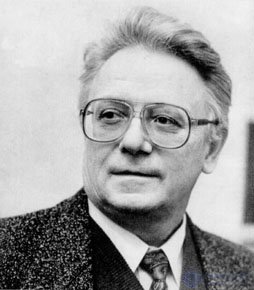 General abilities are such individual personality traits that provide relative ease and productivity in mastering knowledge and carrying out various activities;
General abilities are such individual personality traits that provide relative ease and productivity in mastering knowledge and carrying out various activities;
Special abilities are a system of personality traits that help achieve high results in any field of activity. Special abilities are organically linked to common ones.
Pedagogical abilities call a set of individual psychological characteristics of a teacher’s personality that meet the requirements of pedagogical activity and determine success in mastering this activity. The difference in pedagogical abilities from pedagogical skills lies in the fact that pedagogical abilities are personality traits, and pedagogical skills are individual acts of pedagogical activity carried out by a person at a high level.
Each ability has its own structure, it distinguishes between leading and auxiliary properties.
Pedagogical tact is the teacher's observance of the principle of action in communicating with children in various fields of activity, the ability to choose the right approach to students (Russian ..., 1999, p. 411; see annotation).
Pedagogical observation is the ability of a teacher, manifested in the ability to notice the essential, characteristic, even unobtrusive properties of students. In other words, it can be said that pedagogical observation is the quality of the personality of a teacher, which consists in the high level of development of the ability to concentrate attention on one or another object of the pedagogical process.
Domestic researchers of pedagogical abilities based on the provisions of S.L. Rubinstein (Rubinstein S.L., 1999; see annotation), B.M. Teplova in the 60s. last century identified a whole set of pedagogical abilities (Teplov BM, 1985). The range of teaching skills is very large. It covers the whole structure of teaching. Psychologists and educators who have studied the professiogram of a teacher highlight various abilities of a teacher. In studies N.V. Kuzmina revealed such abilities as pedagogical observation, pedagogical imagination, pedagogical tact, attention distribution, organizational skills (Kuzmina N.V., 1967; see annotation).
The listed pedagogical abilities allow to successfully carry out all aspects of pedagogical activity.
So, the pedagogical imagination is especially significant for constructive activity - it is expressed in the "design" of students' future knowledge, the ability to find suitable methods and techniques in advance. It is also expressed in the "design" of character, the habits of students in both educational and educational work, in the formation of the collective as a whole. It is the pedagogical imagination that helps the teacher to carry out developmental training and education.
Pedagogical tact is manifested in the communicative side of pedagogical activity. As we noted above, it is the ability to establish correct relations with students, teachers, parents, a sense of proportion in relationships (moderately demanding, moderately kindness), which makes it possible to eliminate preventing conflict situations (Levites DG, 2001; cm. annotation).
Organizational skills are also needed for the activity of a teacher, since all pedagogical activity is organizational in nature.
In the most generalized form, the pedagogical abilities were presented by V.А. Krutetsky (V. Krutetsky, 1976. p. 294-299), who gave them the corresponding general definitions (Fig. 7).
On the basis of the theory of general pedagogical abilities, a number of scientists identified special pedagogical abilities of teachers of various subjects. For example, A.V. Andrienko studied the special pedagogical abilities of a mathematics teacher (Fig. 8), L.N. Lavrova - history teachers (Fig. 9).
The teacher’s achievement of excellence in teaching and raising children depends on the pedagogical abilities of the teacher, on his personal qualities.
(http://www.elibrary.ru/books/teplov/3-1-6.htm; see NA Aminov’s article “Model characteristics of teacher’s abilities and talents”).
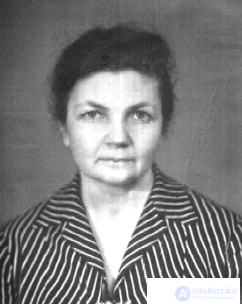
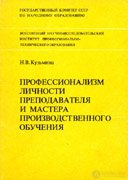 Currently, the concept of pedagogical abilities developed by N.V. Kuzmina (Kuzmina N.V., 1990; see annotation), is the most comprehensive system interpretation. In this concept, all pedagogical abilities are correlated with the main aspects (parties) of the pedagogical system.
Currently, the concept of pedagogical abilities developed by N.V. Kuzmina (Kuzmina N.V., 1990; see annotation), is the most comprehensive system interpretation. In this concept, all pedagogical abilities are correlated with the main aspects (parties) of the pedagogical system.
First, we briefly consider some aspects of the pedagogical system developed by N.V. Kuzmina (Fig. 10).
The system is represented as a set of interrelated elements that form a stable unity and integrity, with integral properties and laws .
The pedagogical system is defined as a set of interrelated structural and functional components, subject to the goals of education, education and training of the younger generation and adults .
Structural components are the basic basic characteristics of pedagogical systems, the combination of which forms the fact of their existence and distinguishes them from all other (non-pedagogical) systems . In the interpretation of N.V. Kuzmina pedagogical system includes five structural elements: goals, educational content (educational information), means of pedagogical communication, students and teachers. In addition, the scientist considers and functional components.
Functional components are stable basic relations of the main structural components arising in the course of activities of managers, teachers, students and thereby causing movement, development, improvement of the pedagogical system and, consequently, their stability, resilience, survival. There are five main functional components: gnostic, design, constructive, communicative and organizational. The same elements are elements of individual pedagogical activity (Fig. 11).
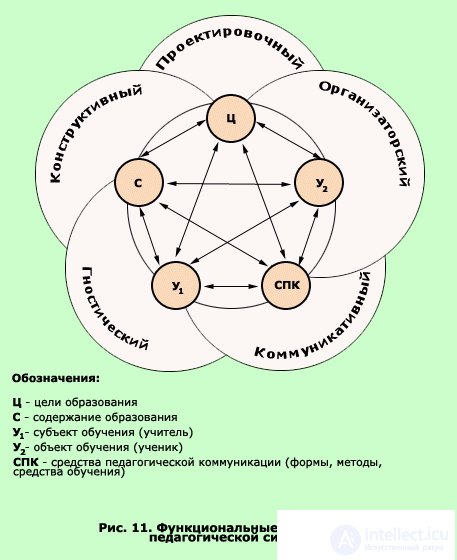
The first level consists of perceptual-reflexive abilities, turned to the object-subject of pedagogical influence, i.e. to the student, in connection with himself (the teacher). They determine the intensity of the formation of the sensory fund of the teacher’s personality.
The second level consists of design pedagogical abilities, addressed to methods of influencing an object-subject of a student, in order to shape his need for self-development, self-assertion, for civil and professional development.
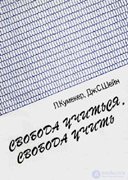 The level of formation of perceptual-reflexive pedagogical abilities ensures the formation of pedagogical intuition, which, in turn, can be as “good”, i.e. helping to solve pedagogical tasks productively, as well as “bad”, i.e. prompting wrong decisions.
The level of formation of perceptual-reflexive pedagogical abilities ensures the formation of pedagogical intuition, which, in turn, can be as “good”, i.e. helping to solve pedagogical tasks productively, as well as “bad”, i.e. prompting wrong decisions.
Thus, perceptual-reflexive pedagogical abilities “specialize” in analyzing the interaction between the subject of professional pedagogical creativity and the students for whom he is responsible (Kumeker L., Shein J.S., 1994; see annotation).
Design pedagogical abilities are of particular sensitivity to the ways of creating productive technologies of teaching and educational impact on students in order to form their desired qualities, i.e. achieving the desired end results (Pityukov V.Yu., 2001; see annotation).
 Gnostic abilities consist in the teacher's specific sensitivity to the ways of studying students in connection with the goals of forming each person’s moral, labor, intellectual foundation that provides him with self-development even when he enters an unfavorable environment (Ksenzova G.Yu., 1999; see annotation).
Gnostic abilities consist in the teacher's specific sensitivity to the ways of studying students in connection with the goals of forming each person’s moral, labor, intellectual foundation that provides him with self-development even when he enters an unfavorable environment (Ksenzova G.Yu., 1999; see annotation).
Design pedagogical abilities consist in the special sensitivity of teachers to the construction of a “pedagogical labyrinth”, i.e. the pedagogical route that a student needs to lead from ignorance to knowledge, so that he would be not only interested, but also useful, economically and deeply, difficult and easy, tense and "creative".
Constructive pedagogical abilities are particularly sensitive to how to build the upcoming lesson, meeting, lesson in time and space, to move towards the desired end result: where to start, what system of tasks-tasks to offer, how to organize their implementation, how to conduct evaluation.
Communicative pedagogical abilities are manifested in the specific sensitivity of the teacher to the methods of establishing with students and developing pedagogically expedient relationships based on winning their authority and trust and are provided with:
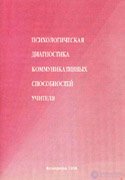 ability to identify, i.e. identifying with students;
ability to identify, i.e. identifying with students;Организаторские педагогические способности состоят в особой чувствительности педагога:
Существенен вывод исследователей шгколы Н.В. Кузьминой, что педагогические способности предполагают высокий уровень развития общих способностей (наблюдательности, мышления, воображения) и что другие способности включаются в сферу педагогической деятельности лишь при наличии педагогической направленности и педагогических способностей в условиях их дальнейшего развития. Кроме того, выделены три типа сочетания педагогических и других специальных способностей: педагогические способности, которые либо помогают, либо нейтральны, либо мешают педагогической деятельности
В отечественной педагогической психологии в исследованиях Н.В. Кузьминой и ее школы, А.К. Марковой, С.В. Кондратьевой, Л.М. Митиной и других ученых проблема свойств личности педагога, определяющих эффективность (продуктивность) педагогической деятельности, стала предметом специального теоретического и экспериментального изучения (Митина Л.М., 1994; см. аннотацию).
Одно из ведущих, стержневых образований личности учителя, определяющих ее целостность и готовность к деятельности, составляют профессионально-ценностные ориентации. Они могут быть охарактеризованы как избирательные отношения учителя к педагогической профессии, к личности воспитанника, к самому себе, как формирующиеся на основе широкого спектра духовных отношений личности, во всех видах деятельности, профессионально значимых для нее.
Существенны здесь предложенная дифференциация самой компетентности и выделение такого важного ее уровня, как аутопсихологическая компетентность . Она базируется на понятии социального интеллекта, "как устойчивой, основанной на специфике мыслительных процессов эффективного реагирования и накопления социального опыта, способности понимать самого себя, а также других людей, их взаимоотношения и прогнозировать межличностные события". Аутопсихологическая компетентность соотносится с понятием профессионального самосознания, самопознания и саморазвития.
Проблема познания педагогом личности учащегося является жизненно актуальной. Еще К.Д. Ушинский подчеркивал, что если педагог хочет воспитать человека, то он должен, прежде всего, узнать его во всех отношениях, понять особенности личности обучаемого (Ушинский К.Д., 1974). Именно с уровнем познания педагогом личности учащегося, с адекватностью и полнотой познания в существенной мере связана результативность педагогической деятельности. Как явствует из исследований С.В. Кондратьевой, для педагогов низкого уровня продуктивности характерно восприятия лишь внешнего рисунка поступка, без проникновения в истинные цели и мотивы, в то время как педагогов высокого уровня продуктивности отличают отражение устойчивых интегративных свойств личности, выявление ведущих целей и мотивов поведения учащихся, объективность оценочных суждений.
Рефлексивно-перцептивные умения педагога образуют органичный комплекс познания собственных индивидуально-психологических особенностей, оценивание своего психического состояния, а также осуществление разностороннего восприятия и адекватного познания личности учащегося.
Как и любые умения, они основаны на системе соответствующих знаний (закономерностей и механизмов межличностного познания и рефлексии, возрастной психологии детей, подростков, юношей) и определенных навыков.
Последние предполагают автоматизацию способов решения отдельных педагогических задач на самопознание и познание личности учащегося.
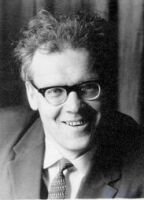 В свете современных исследований (А.А. Бодалев, Г.А. Ковалев) имеется прямая связь между полноценностью, когнитивной сложностью, дифференцированностью Я-концепции субъекта и отражением им личностных особенностей других людей. Познание личности учащегося может существенно затрудняться в случае плохой осведомленности педагога об особенностях своей собственной личности, о своих сильных и слабых сторонах, установках, индивидуальных особенностях реагирования в различных педагогических ситуациях (Шевандрин Н.И., 1995; см. аннотацию). Стереотипное восприятие учащихся усиливается при столкновении с различными трудностями в работе. Так, чем больше трудностей испытывает педагог в своем педагогическом общении и деятельности, тем менее ответственными, менее заинтересованными, менее осознанно выбирающими профессию ему представляются учащиеся, с которыми он работает. Здесь проявляется своеобразная психологическая защита, когда обилие субъективных трудностей в собственной педагогической деятельности объясняется внешними, якобы объективными причинами: "трудный контингент", "безответственные личности", "случайные для профессии люди", "лентяи" и т.п. (Бодалев А.А., 1995; см. аннотацию).
В свете современных исследований (А.А. Бодалев, Г.А. Ковалев) имеется прямая связь между полноценностью, когнитивной сложностью, дифференцированностью Я-концепции субъекта и отражением им личностных особенностей других людей. Познание личности учащегося может существенно затрудняться в случае плохой осведомленности педагога об особенностях своей собственной личности, о своих сильных и слабых сторонах, установках, индивидуальных особенностях реагирования в различных педагогических ситуациях (Шевандрин Н.И., 1995; см. аннотацию). Стереотипное восприятие учащихся усиливается при столкновении с различными трудностями в работе. Так, чем больше трудностей испытывает педагог в своем педагогическом общении и деятельности, тем менее ответственными, менее заинтересованными, менее осознанно выбирающими профессию ему представляются учащиеся, с которыми он работает. Здесь проявляется своеобразная психологическая защита, когда обилие субъективных трудностей в собственной педагогической деятельности объясняется внешними, якобы объективными причинами: "трудный контингент", "безответственные личности", "случайные для профессии люди", "лентяи" и т.п. (Бодалев А.А., 1995; см. аннотацию).
Анализируя особенности учащегося как субъекта учебной деятельности, следует выявить его склонности в теоретических и практических видах деятельности. Один и тот же учащийся в различных видах учебно-познавательной деятельности может проявлять совершенно различные свойства, например, учащийся может проявлять высокую степень автономности, самостоятельности, развитый самоконтроль, ответственность, целеустремленность и инициативность и устойчивую учебную мотивацию в практическом обучении и прямо противоположные качества в теоретическом обучении.
Педагог, пытаясь понять состояние и поведение учащихся, дает свою интерпретацию и оценку происходящего, считая при этом, что его интерпретация почти всегда верна, хотя фактически педагогические интерпретации нередко бывают ошибочны.
Механизмы идентификации, эмпатии и децентрации являются важнейшими в процессе познания педагогом личности учащегося. Именно со способностью побороть свой эгоцентризм, понять и принять точку зрения учащегося, встать на его место и рассуждать с его позиции в существенной мере связаны адекватность, полнота и глубина познания личности учащегося. Все это возможно не только благодаря изначальным педагогическим способностям, но и специальным рефлексивно-перцептивным умениям, которые связаны со специфической чувствительностью педагога к собственной личности и к личности учащегося. От данных способностей зависит эффективность познания педагогом самого себя и личности другого человека.
Одним из самых простых способов понимания другого человека является уподобление (идентификация) себя ему. Это, разумеется, не единственный способ, но в реальных ситуациях взаимодействия люди пользуются таким примером, когда предположение о внутреннем состоянии партнера строится на основе попытки поставить себя на его место.
Установлена тесная связь между идентификацией и другим, близким по содержанию явлением - эмпатией. Особая роль в процессе познания педагогом личности учащегося принадлежит эмпатии. Способность к сопереживанию не только повышает адекватность восприятия "другого", но и ведет к установлению эффективных, положительных взаимоотношений с учащимися.
Эмпатия - способность эмоционально воспринять другого человека, проникнуть в его внутренний мир, принять его со всеми его мыслями и чувствами. Эмпатия также определяется как особый способ восприятия другого человека. Здесь имеется в виду не рациональное осмысление проблем другого человека, как это имеет место при взаимопонимании, а стремление эмоционально откликнуться на его проблемы. Способность к эмоциональному отражению у разных людей неодинакова.
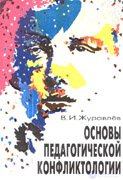 In working with difficult adolescents, manifestation of empathy is of particular importance, since for many of them empathy is an unmet, scarce need. Thus, according to research data, 92% of adolescents registered with the juvenile affairs inspectorate felt a lack of positive emotional contacts, were in a state of psychological isolation in their educational teams. It has been experimentally proven that the development of the propensity to violence and its consolidation in the form of a person’s life style are usually directly related to a lack of empathy both in the individual and in her environment. Most delinquent adolescents have experienced some kind of emotional isolation: lack of love, lack of parental care, and so on. And in school they are not only lacking empathy on the part of teachers, but also under even greater pressure than in the family. In some cases, the inability to manifest empathy, combined with low pedagogical professionalism, significantly aggravates the process of negative development of the personality of the adolescent, directly leads to didactication , a negative mental state of the student, caused by a violation of tact on the part of the teacher and highly negatively affecting the student’s activities and relations others (Zhuravlev VI, 1995; see annotation), (Belukhin DA, 1994; see annotation).
In working with difficult adolescents, manifestation of empathy is of particular importance, since for many of them empathy is an unmet, scarce need. Thus, according to research data, 92% of adolescents registered with the juvenile affairs inspectorate felt a lack of positive emotional contacts, were in a state of psychological isolation in their educational teams. It has been experimentally proven that the development of the propensity to violence and its consolidation in the form of a person’s life style are usually directly related to a lack of empathy both in the individual and in her environment. Most delinquent adolescents have experienced some kind of emotional isolation: lack of love, lack of parental care, and so on. And in school they are not only lacking empathy on the part of teachers, but also under even greater pressure than in the family. In some cases, the inability to manifest empathy, combined with low pedagogical professionalism, significantly aggravates the process of negative development of the personality of the adolescent, directly leads to didactication , a negative mental state of the student, caused by a violation of tact on the part of the teacher and highly negatively affecting the student’s activities and relations others (Zhuravlev VI, 1995; see annotation), (Belukhin DA, 1994; see annotation).
The logical form of knowledge of personal characteristics of oneself and other people is reflection . It involves an attempt to logically analyze certain signs and make a certain conclusion about the other person and his actions (generalization), and then, based on this generalization, make private conclusions about specific cases of interaction, but often generalize and private conclusions are made on a small limited number signs are incorrect and rigid (that is, are not adjusted for specific situations).
The process of understanding each other is “complicated” by the phenomenon of reflection. Reflection here refers to the awareness by the acting individual of how he is perceived by the communication partner. This is not just the knowledge or understanding of the other, but the knowledge of how the other understands you, the peculiarly doubled process of mirror reflections of each other, a deep, consistent interrelation, the content of which is the reproduction of the partner’s inner world, and this inner world, in turn, is reflected your inner world
Deciphering these concepts, it is advisable to formulate the requirements for the skills of the teacher, describing various aspects of his activities. Based on the analysis of psychological and pedagogical literature and our own experience, we can formulate the following skill groups.
Design skills , which consist in planning their course, in anticipating possible difficulties on the part of students in mastering this course, in finding methods and teaching methods necessary to overcome difficulties for students, in determining the most rational activities of students promoting successful mastery of knowledge, skills and abilities , in the ability to adjust their activities, based on the reaction of students to teaching, in the selection of illustrative material throughout the course, in differentiating so when teaching students.
The constructive component of a teacher’s activity includes: selecting and developing a composition of the information content; designing a student's activity, during which the necessary information can be acquired; designing your own future activities and behaviors for effective interaction with students. In this regard, the teacher should be able to: select the material for the lesson, highlight key concepts and patterns in it, find the right balance of actual and theoretical material in this lesson, plan logical transitions from one stage of classes to another, arrange the theoretical material from easy to more complex , to draw conclusions on this topic and carry out the transition to the next one, compositionally build activities that are not similar to each other, etc.
The organizational component includes the organization of information in the process of its communication to students and the organization of various types of students' activities in such a way that the results correspond to the goals of the system of their own activities and behavior in the process of interaction with students. Interaction involves the integration, integration of members of the interacting group and the impact on the group of the teacher-organizer, providing this integration. Integration is an organizational activity aimed at accounting, control, establishment of individual responsibility, etc.
In connection with this aspect of activity, the teacher should be able to organize his time, the individual work of students, the collective activity of students, to interact with students in academic work, etc.
The communicative component , which is characterized by relationships in a team, is considered in two aspects: a) horizontal relationships (teacher – student) and b) vertical relationships (the head of the pedagogical system is a partner in activities).
The gnostic component is a kind of core of all of the above. It includes the study and analysis of the features of the process and the results of their own activities, the study and analysis of the activities and the ability to influence other people, taking into account their age and typological features.
An activity style is an interconnected set of individual characteristics, methods and the nature of the implementation of a certain activity, usually involving interaction with people and serving as a dynamic stereotype (Fig. 12).
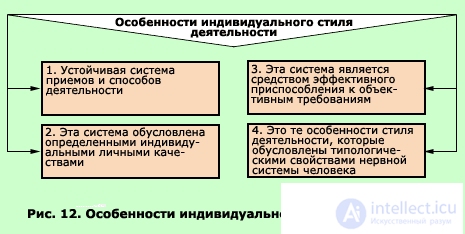
The main characteristics of the manifestation of the listed styles in pedagogical activity are presented in the figure (see animation).
A.K. Markova identifies the following most characteristic four styles of teacher activity (Markova AK, 1987).
1. Emotional-improvisational. Focusing mainly on the learning process, the teacher is not adequately adequate in relation to the final results, plans its work; for a lesson, he selects the most interesting material, and less interesting (although important) often leaves for students' independent work. It focuses mainly on strong students. The activity of the teacher is highly operational: in the lesson the types of work often change, collective discussions are practiced. However, a rich arsenal of used teaching methods is combined with low methodicity; the consolidation and repetition of educational material and the control of students' knowledge are not sufficiently represented. The activity of the teacher is characterized by intuitiveness, heightened sensitivity depending on the situation at the lesson, personal anxiety, flexibility and impulsivity. In relation to students, such a teacher is sensitive and insightful.
2. Emotional and methodical. Focusing on both the result and the learning process, the teacher adequately plans the teaching and educational process, gradually working out the educational material, without losing the consolidation, repetition and control of students' knowledge. The activity of the teacher is highly operational, but intuitiveness over reflexivity prevails. The teacher seeks to activate students not by external entertainment, but by the features of the subject itself. The teacher is highly sensitive to changes in the situation in the classroom, personally anxious, but sensitive and sensitive to students.
3. Reasoning-improvisational. Teachers are characterized by a focus on the process and learning outcomes, adequate planning, efficiency, a combination of intuition and reflexivity. The teacher is less ingenious in varying the teaching methods; he does not always use collective discussions. But the teacher himself speaks less, especially during the survey, preferring to influence students indirectly, allowing respondents to formulate a detailed answer. The teachers of this style are less sensitive to changes in the situation in the classroom, they lack demonstration of pride, and caution and tradition are characteristic.
4. Reasoning-methodical. Focusing mainly on learning outcomes and adequately planning the educational process, the teacher is conservative in the use of means and methods of pedagogical activity. High methodicalness is combined with a small, standard set of teaching methods, a preference for students' reproductive activities, and rare collective discussions. The teacher of this style is distinguished by reflexivity, low sensitivity to changes in situations in the classroom, caution in their actions.
A.K. Markova and A.Ya. Nikonov (Markova AK, Nikonov A.Ya., 1987. P. 41-42) consider three groups of characteristics of the individual style of pedagogical activity - 1) substantial, 2) dynamic and 3) productive characteristics (fig. 14).
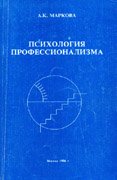 Pedagogical acmeology is the science of how to achieve professionalism and competence in the work of a teacher. One of the central concepts of pedagogical acmeology is the concept of teacher professionalism (Markova AK, 1996; see annotation). It is understood as an integral characteristic of the teacher’s personality, which implies that he owns types of professional activity and that the teacher has a combination of professionally important psychological qualities that provide an effective solution to the professional pedagogical tasks of training and education (children, adult students). (Acmeology, 2002. P. 444)
Pedagogical acmeology is the science of how to achieve professionalism and competence in the work of a teacher. One of the central concepts of pedagogical acmeology is the concept of teacher professionalism (Markova AK, 1996; see annotation). It is understood as an integral characteristic of the teacher’s personality, which implies that he owns types of professional activity and that the teacher has a combination of professionally important psychological qualities that provide an effective solution to the professional pedagogical tasks of training and education (children, adult students). (Acmeology, 2002. P. 444)
(http://elite.far.ru/; see the website of the Department of Acmeology and Psychology of Professional Activity of the RAGS).
A.K. Марковой разработано модульное представление профессиональной компетенции учителя, а Л.М. Фридман предложил схему психологического анализа педагогического опыта (см. анимацию)
(http://www.pirao.ru/strukt/lab_gr/l-prof.html; см. лабораторию профессионального развитя личности ПИ РАО).
Comments
To leave a comment
Pedagogical psychology
Terms: Pedagogical psychology